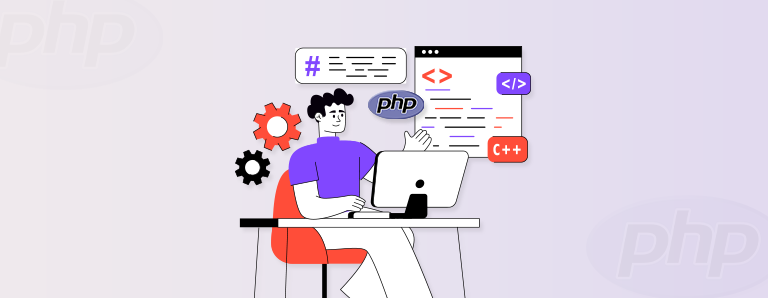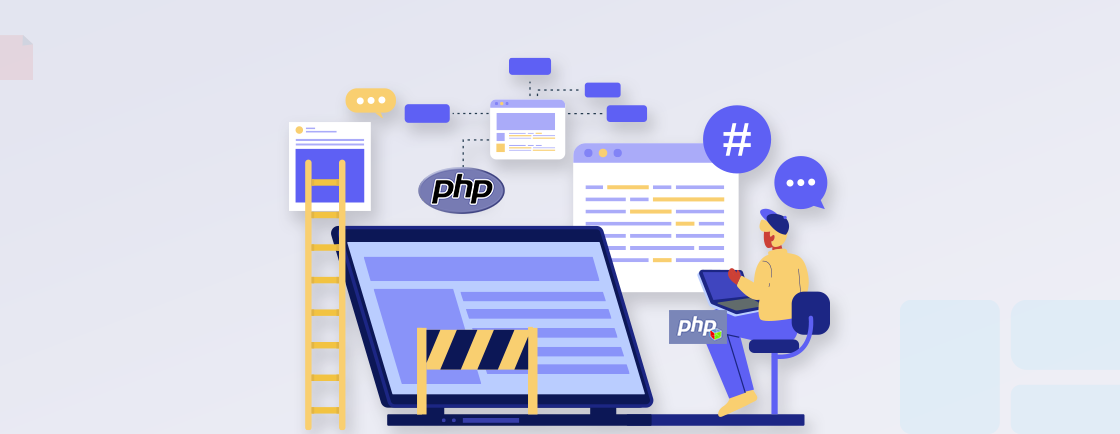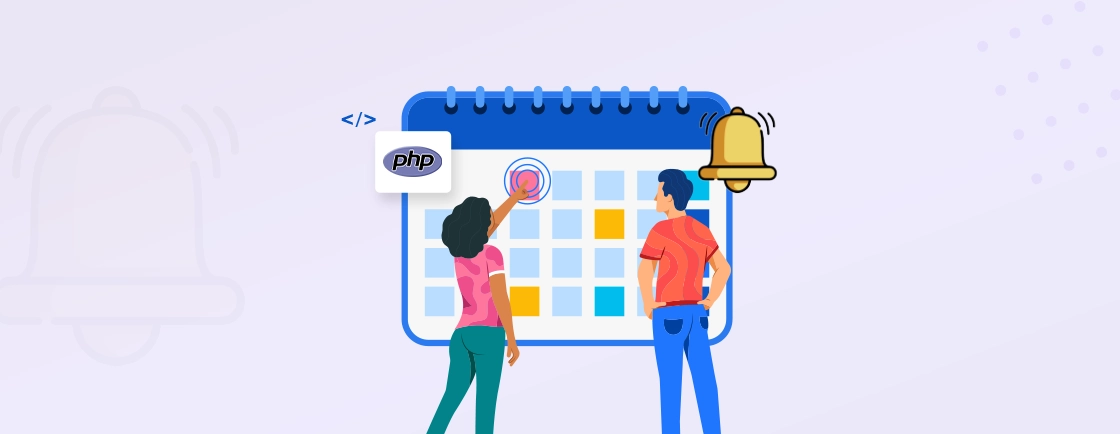Table of Contents
To create a website or web application of any kind, you need some web development technologies that act as the foundation for your project. One of these technologies is the PHP libraries.
These libraries provide developers with tools and features that improve the development process and the end product. They provide pre-written functions and classes that save time and effort, and that is quite significant when you’re trying to create high-quality websites or web apps. So, what are the best PHP libraries for better web development?
That’s what we aim to uncover in this blog. I’ll list out the most popular PHP libraries, their benefits, and how you can choose the best one for your project. But first, let’s see what a PHP library is.
What is a PHP Library?
A PHP library is a collection of pre-written code that provides pre-built functions and classes to improve the efficiency of websites. Web developers gain time and effort using these code snippets instead of creating them from scratch. PHP Libraries offer many features, such as image processing, database connectivity, form validation, etc.
Also, these libraries can be used for different web development needs. From handling file uploads, user authentication, and authorization to integrating APIs for third-party services. Plus, there’s extensive documentation available for popular libraries. Therefore, developers can understand and use them in a better way and also troubleshoot any issues that come up.
Moreover, they promote code reuse, and adding PHP charts and graphs libraries allows developers to present complex data sets visually and maintainably. Thus, developers don’t have to write code from the start for common tasks. This saves time and ensures consistent implementation across multiple projects. Additionally, well-established PHP libraries reduce the risk of introducing bugs, and integrating php testing frameworks ensures the application remains stable after every update.
If you want to save development time and ensure reliable, secure web applications, consider working with PHP development company experienced in using the best PHP libraries.
Best PHP Libraries for Better Web Development
PHP, as a scripting language, supplies developers with lots of tools and libraries for developing proficient and solid web apps. These libraries can massively improve the web development experience. Let’s check out some of the best PHP libraries:
Laravel
Laravel is one of the modern and popular PHP frameworks and boasts an expressive and elegant syntax that makes it a pleasure to work with. It offers features like method chaining and clear, human-readable code, making it easier to write and maintain web applications.
Laravel follows the Model-View-Controller (MVC) architectural pattern, which promotes the separation of concerns and allows developers to organize code efficiently. This platform comes with a powerful templating engine called Blade, which is often used when developing a REST API in PHP to handle data presentation layers. Blade allows you to create reusable templates, include partials, and extend layouts, simplifying the creation of dynamic and appealing views.
This PHP platform also includes a command-line tool called Artisan, which helps automate various tasks, such as database migrations, seeding, and code generation. Web development experts create custom Artisan commands to streamline your workflow.
CodeIgniter
CodeIgniter is a lightweight and straightforward PHP web application framework that is known for its simplicity, speed, and ease of use. It doesn’t come with the extensive features and components some other frameworks offer. This means it has a small footprint and is quick to set up and get running.
Like many other modern PHP frameworks, CodeIgniter follows the Model-View-Controller (MVC) architectural pattern. This separation of concerns allows for organized code and easy maintenance.
CodeIgniter is a solid choice for small to medium-sized projects where simplicity, speed, and a minimalistic approach to web development are valued.
Symfony
Symfony is unique in that it is both a full-stack framework and a collection of reusable PHP components. These components can be used independently in any PHP project, not just web applications.
Symfony uses the Twig templating engine, which provides a clean, secure, and efficient way to build dynamic views. It enforces a separation between PHP code and HTML markup. This PHP framework provides a powerful command-line tool called the Console component (Symfony Console). It allows developers to create custom commands for various tasks, such as running maintenance scripts and managing application tasks.
Symfony is highly extensible and allows developers to pick and choose the components they need. This makes it suitable for a wide range of projects, from small applications to large, enterprise-level systems.
CakePHP
CakePHP is a robust PHP web application framework designed for building web applications quickly and efficiently. It follows the convention-over-configuration (CoC) and the Model-View-Controller (MVC) architectural pattern, making it an excellent choice for developers who want a structured and easy-to-learn framework.
This framework offers CRUD (Create, Read, Update, Delete) scaffolding, which allows you to quickly generate basic functionality for database operations. This feature speeds up development by reducing the amount of repetitive code you need to write.
The Bake command-line tool in CakePHP can automatically generate code for models, controllers, and views based on your database schema. This helps in rapidly building the initial structure of your application.
Yii
Yii is a high-performance PHP web application framework known for its efficiency, security features, and support for modern web development practices. It’s designed to be efficient and can handle a high volume of requests.
Yii includes Gii, a powerful code generation tool that can automatically generate models, controllers, forms, and other code artifacts based on your database schema. This accelerates development by reducing manual coding.
Security is a top priority in Yii. It provides features like input validation, cross-site scripting (XSS) prevention, cross-site request forgery (CSRF) protection, and secure cookie handling to enhance application security.
Phalcon
Phalcon is a unique and high-performance PHP web application framework that stands out due to its architecture and efficiency. What sets Phalcon apart from many other PHP frameworks is that it’s implemented as a C-extension for PHP. That means a significant part of Phalcon’s codebase is written in C and compiled directly into the PHP interpreter. As a result, Phalcon is exceptionally fast, making it a strong candidate for building real time apps with PHP websockets that require low latency.
This PHP framework has a built-in dependency injection container that facilitates the management of object dependencies and promotes the use of dependency injection, which makes code more modular and testable.
The framework provides a flexible routing system that allows you to define custom routes and create RESTful APIs. It supports both traditional URL patterns and clean, search engine-friendly URLs.
Guzzle
A versatile PHP framework, Guzzle is primarily designed as an HTTP client library for PHP. It provides a set of classes and methods to create, send, and manage HTTP requests and responses.
Guzzle supports asynchronous HTTP requests, which allows you to send multiple requests concurrently, potentially improving the performance of your application. This library also provides tools for testing and mocking HTTP requests. That makes it easier to create unit tests for code that relies on external web services.
Guzzle allows you to add middleware to the request/response process, making it easy to modify, log, or otherwise process requests and responses at various stages.
These are a few of the most common PHP libraries and frameworks used by almost every web development company. They have their own strengths and drawbacks, so you need to weigh the options and choose the most suitable one.
How to Choose the Right PHP Library for Your Project?
Selecting the right PHP library for your project involves carefully evaluating your project’s requirements and aligning them with the library’s capabilities and strengths. Here are the factors that will help you choose the most suitable PHP library for your web development project.
- Project Requirements: Clearly outline your project’s scope, functionalities, and any specific technical requirements. This will help you identify libraries that cater to your project’s needs.
- Project Complexity: Assess the complexity of your project, considering factors like the number of features, user base, and potential scalability needs. This will help you determine if you need a lightweight or more robust library.
- Learning Curve: Evaluate your team’s expertise and familiarity with PHP libraries. If your team is new to PHP libraries, choose a library with a gentler learning curve to avoid delays.
- Community Support: Check the size and activity level of the library’s community. A vibrant community provides valuable resources, tutorials, and support when you need assistance.
- Documentation Quality: Review the library’s documentation to ensure it is comprehensive, easy to understand, and up-to-date. Good documentation will significantly improve your development experience.
- Performance and Scalability: Evaluate the library’s performance benchmarks and scalability potential. If your project anticipates high traffic or future growth, choose a library that can handle the load.
- Security Practices: Assess the library’s security practices and commitment to addressing vulnerabilities. Choose a library with a good track record of security updates and maintenance.
- Third-party Integrations: Check if the library integrates well with other tools and frameworks you might be using, such as database systems or front-end frameworks.
- Community Recommendations: Engage with the PHP community forums and seek recommendations from experienced developers who have used the libraries you’re considering.
There’s no one-size-fits-all when it comes to the best PHP libraries for better web development. You have to carefully analyze the options according to these factors and choose a suitable one.
Conclusion
PHP libraries and frameworks offer numerous opportunities to improve web development. They simplify database interactions, streamline authentication processes, and help developers be more productive with their projects. It’s vital to note that the choice of library is unique to each project and personal preference.
The best PHP libraries for better web development are:
- Laravel
- CodeIgniter
- Symfony
- CakePHP
- Yii
- Phalcon
- Guzzle
Looking to build powerful, efficient web applications? Hire PHP developers who specializing in top libraries and frameworks to create scalable, secure, and high-performing solutions.
FAQs on the Best PHP Libraries for Better Web Development
Why should I use PHP libraries for web development?
Using PHP libraries can significantly speed up the development process by leveraging existing code and functionalities. They promote code reusability maintainability, and help avoid reinventing the wheel. Additionally, libraries often come with comprehensive documentation and active community support.
How do I install and use PHP libraries?
Installing and using PHP libraries typically involves using Composer, a dependency management tool. You can install Composer globally on your system, create a composer.json file with the required library dependencies, and run “composer install” to fetch and install the required libraries. Once installed, you can include and use the libraries in your PHP code.
Are PHP libraries free to use?
Many PHP libraries are open-source and freely available for use, making them cost-effective solutions for web development. However, some libraries may have certain licensing terms or restrictions. It’s essential to review the licensing terms and comply with them, especially when using libraries in commercial projects.
Master PHP Web Development
Access expert guides and tips to enhance your PHP programming capabilities.





